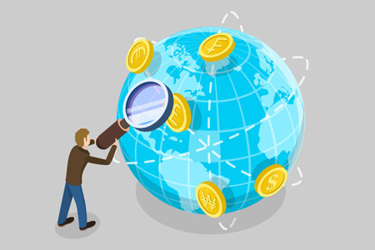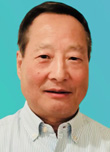Global CDMOs: What's The Right Price And Location?

By Louis Garguilo, Chief Editor, Outsourced Pharma

Jin-an Jiao, Vice President, Process and Analytical Development, Synthekine, a developer of CAR T therapies and biologics, says despite the specifics of his pipeline, and the relatively small amount of drug substance and product needed, plenty of CDMOs are interested in working with him.
“However,” he says, “what’s most interesting in the responses to our RFPs is there's a huge difference in price estimates for the same work.”
“As an example, for a tech transfer and a manufacturing run, I had one CDMO quote at what I consider a reasonable low price, and another give me a quote two times more than that.”

- Did the CDMO not fully understand the breadth and depth of the RFP?
- Is it a ploy to get you in the door, when they hit you with the ‘real price’ via additive costs and adjustments as the program progresses?
- Is this low bid a negative indicative of quality, timelines, or other factors?
- Does geography account for much of the reduced cost (i.e., the price of labor/overhead)?
I asked Jiao these questions. Here are his answers, and more insights from decades of, as we said in part one of our discussion, a reluctant outsourcer.
The Price – And Location – Is Right
Jiao starts with a focus on geography.
While location of the CDMO per se is one coefficient of pricing, he conveys a bevy of caveats before too many conclusions are drawn from that single circumstance.
As important as location is in many cases, pricing at times appears to be dictated simply by whether the response comes from a large “brand-name CDMO.” They typically send out the highest estimates of costs, Jiao says.
This is not to disparage larger CDMOs, all of which have rationales and preferred methodologies for estimating costs (and evaluating clients).
But Jiao has had success partnering with lesser known CDMOs. For example, EirGenix of Taiwan.
And although the cost differential is important here, it is not conclusive.
“I actually see, in terms of the quality of overall service, EirGenix is the best when considering my two dozen years of outsourcing development and manufacturing to CDMOs,” he explains.
There are several reasons for this estimation of excellence, starting with what he believes could be most important: professionals in Taiwan remain at the same company for a long time.
“I work with a lot of service providers, including many CDMOs in the U.S. and Europe, but their project managers and subject matter experts keep changing on us.”
That outsourcing experience, says Jiao, “is not very stable.”
And instability impacts service.
Moreover, a job-hopping culture (my phrasing, not Jiao's) indirectly raises the prices CDMOs have to charge customers.
Neither Jiao nor I are implying the freedom to move to new employment opportunities is not a positive trait of a national culture, or any industry.
But excess of anything is excess.
We can stipulate skilled workers aren’t moving to positions at new companies to take lower salaries, and it is not unreasonable to note this difference in country cultures, as well as individual organizations in this regard.
When we discuss (fair or unfair) geographic advantages as a cost factor in global outsourcing, we should note all the factors that feed into discrepancies. Let’s not over-attribute higher pricing at some CDMOs over others due to a single or stereotypical factors.
Pay scales do differ in different countries, and for different reasons. And no, these are not always for reasons benefiting their workers.
However, staying in Taiwan, Jiao tells me professionals with a new bachelor or perhaps master’s degree there start out at roughly half or even one-third of the more usual ~$90,000 starting pay in regions of the U.S.
"I believe that salary in Taiwan is sufficient enough to provide the same level of living to the worker as it is in the U.S.,” says Jiao.
Lower salary scales - and pricing – do not implicitly imply a lesser skilled or satisfied professional.
But What Does The CEO Think?
Jiao had no prior ties to Taiwan when he first selected a CDMO there.
He was born on the China mainland and then emigrated to the U.S., and has only visited Taiwan three times, as part of due diligence or during manufacturing runs.
Recently, Jiao sent out a new RFP around the world for a major scale up – a thousand liter run of STK-012. It has not been decided this will go to EirGenix or anyone else, and he says, there are quite a number of CDMOs now vying for that work.
I wonder, though:
Is Jiao's executive management concerned with recently elevated (and potential more) geopolitical risks for a U.S.-based company to outsource to certain areas of the world?
“Yes, of course," he replies. "Here at Synthekine, our senior management does have concerns, and to be specific, on the potential for a future war between Taiwan and China, as well as other disruptions and overall political and geographical risks.”
However, he says, if he were able to make a decision based only on service, “I would stay in Taiwan, because they are that good.” And so is their pricing.
Nonetheless, he’s enthusiastic that also entering discussions with Synthekine for this next production run, are Lonza, Catalent, and KBI, among others.
Jiao says he would gladly work again with bigger CDMOs based in the U.S. or Europe.
But he adds laughing at the irony, “Some of Lonza’s facilities where our work would fit are located in China!”
